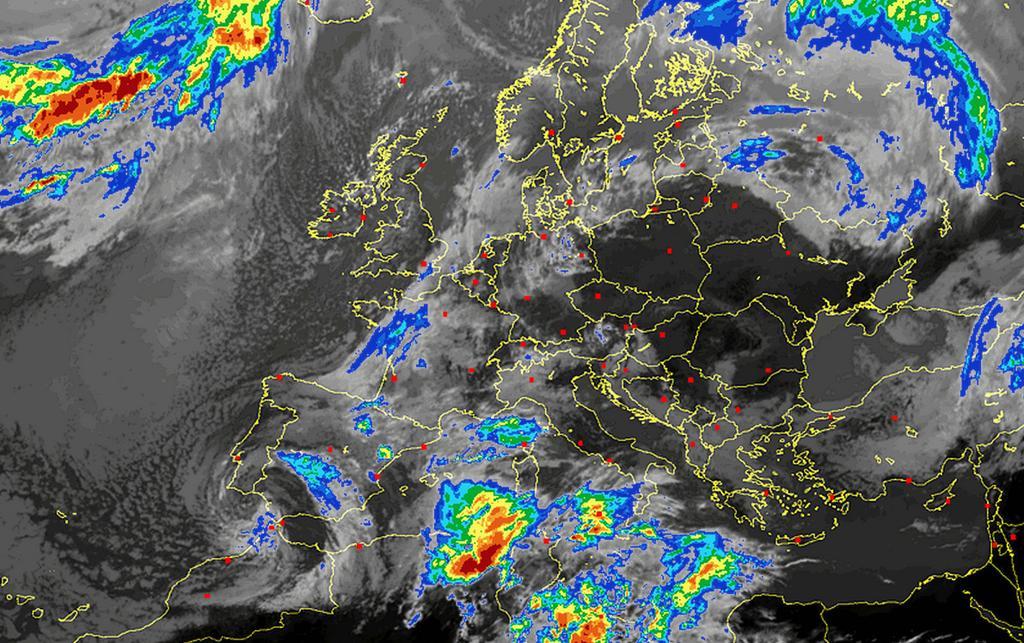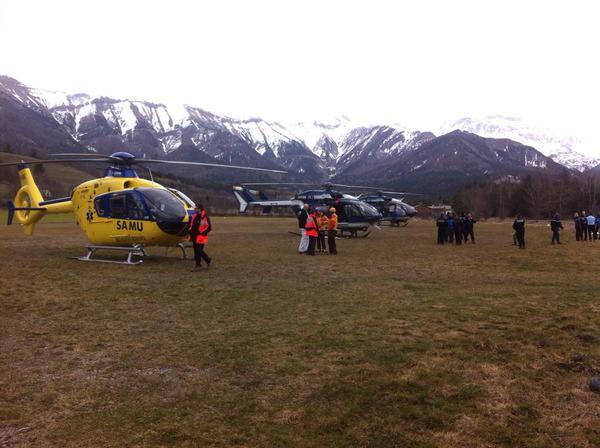Investigators looking into the cause of the French Alps Airbus plane disaster may well be able to rule out bad weather, according to experts.
Conditions in the region of the crash were “nothing out of the ordinary“ according to the experts.
But the experienced French air crash investigation branch, the BEA (Bureau d’Enquetes et d’Analyses) will no doubt take everything into consideration in their inquiry.
Dr Rob Thompson, a meteorologist at the University of Reading, said: “The weather conditions in the area of southern France where the crash is reported to have occurred look like nothing out of the ordinary for this time of year.
“At around 10am temperatures at the inland Le Luc – Le Cannet Airport, which is roughly between Marseille and Nice, was 15-16C (59-61F), with partial cloud cover. Wind speeds on the ground showed breezy conditions, although this does not indicate the conditions higher up in the atmosphere.”
He went on: “Available satellite imagery shows there were not any significant storm systems locally. Data from lightning detectors show the nearest electrical storms were occurring in Sardinia, some 186 miles (300 km) off the south coast of France, which would be much too far away to cause any issues to air traffic.”
Dr Paul Williams, atmospheric scientist at the University of Reading, said: “There was some light clear air turbulence forecast over northern Italy for today between 28,000 and 41,000 feet, but this is nothing out of the ordinary.
“Flying over Italy might be a bit bumpy, but turbulence of this nature would be nothing unusual and nothing that a modern airliner couldn’t normally cope with. Most aircraft would not even bother to divert around it or ask flight crew to sit down.
“It is unlikely that weather conditions will have played a part, from either storms, lightning strikes, turbulence or unusual jet stream conditions, based on the information currently available.”
The BEA, whose inquiries have included the Air France crash in the Atlantic in June 2009 in which all 228 people on board were killed, will want to consider the distress call that came from the aircraft shortly before it crashed.
Although the plane has come down in a remote spot, it should be possible to recover the black box cockpit voice recorder and flight data recorder from the aircraft.
This will give investigators a record of what was said in the cockpit in the moments before the crash as well as providing information as to how all the aircraft parts were working.

